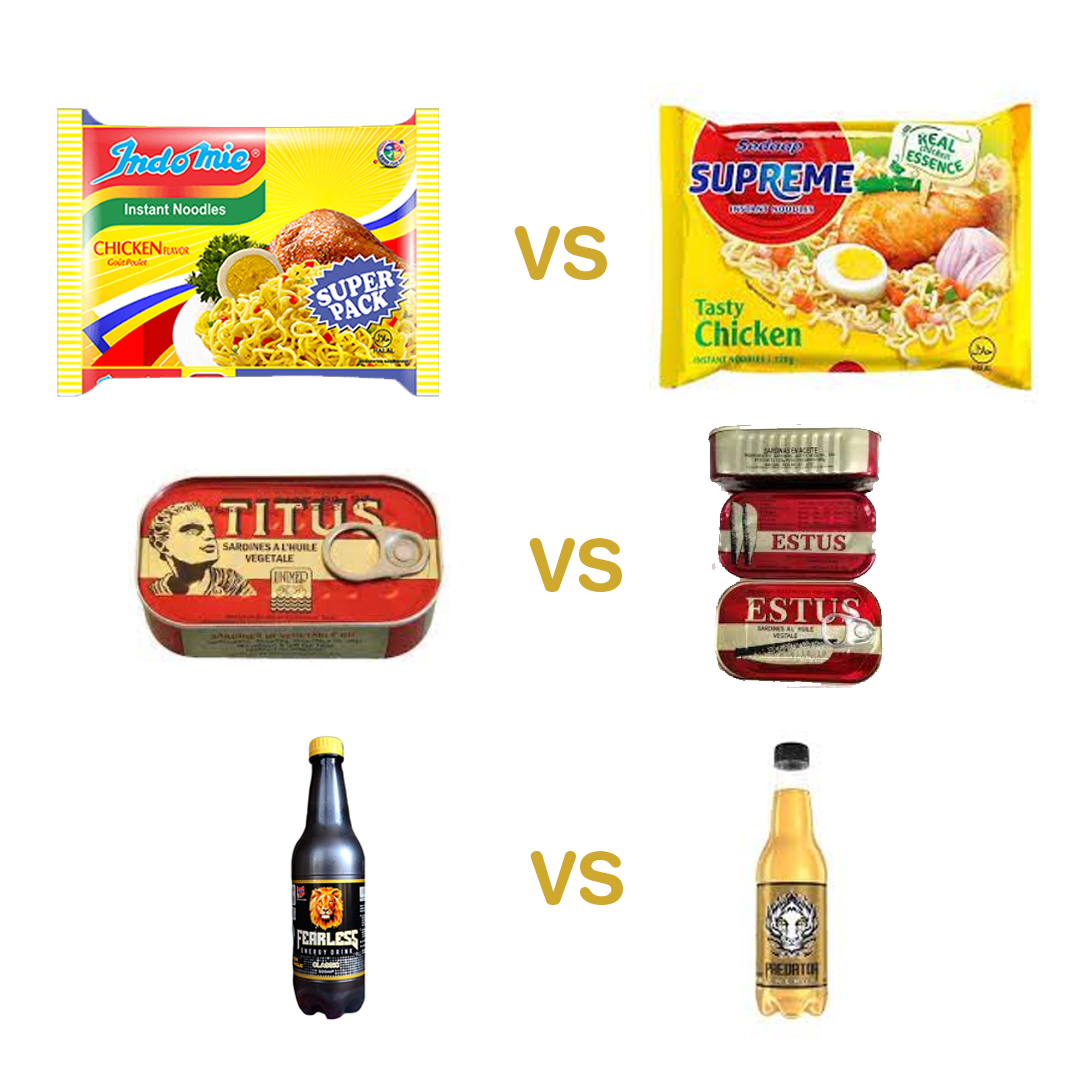By Felicia Nwosu
In the time past, marketers and agencies used to prove their mettle by riding their successes on the crest of creativity, and in adherence to copyright laws. This combination helped in creating intriguing and credible brand messages that built suspense and curiosity in the minds of consumers.
Today, marketers seem to have jettisoned the value and beauty of creativity as well as thrown caution to the wind on copyright laws and regulations on product packaging and branding.
However, when marketers commit to creativity as much as they do to analysing data, the future of marketing becomes brighter because creativity remains the spark that brings life to advertising and branding.
Recently, a World Federation of Advertisers’ (WFA) report took a look at the role of creativity while addressing the challenge of its decline in marketing and advertising. The report also expressed worry on how the value of creativity is perceived in the brand marketing community and what steps might be taken to bolster the creative process.
According to the report, 51 percent of marketers stated that the biggest impediment to creativity is not a lack of direction or failure to be bold enough, but a risk-averse culture, followed by short-term-focus (48 percent) and many other reasons.
In Nigeria for instance, some brands have exhibited this act of lack of creativity and abuse of copyright in their branding by passing off on iconic successful brands with the intention to confuse consumers and exploit their loyalty. They indulge in this due to the lack of effective and stringent copyright laws in the country. Here are some of the glaring cases in view:
Indomie Vs Supreme noodles
Supreme noodles is one brand that emerged in the noodles segment of the market passing off on the existing ruling brand, ‘Indomie’, with a difference only in the taste, according to its pay-off-line. Producers of Supreme noodles from the stable of Primera Food, flagrantly plagiarize Indomie noodles look and feel in all ramifications.
The striking resemblance between the two is very confusing for consumers to differentiate which is dominant in its packaging. Supreme did not miss out anything in its copy and paste prowess as it ensured that the entire packaging such as the dominating yellow colour, the text fonts, the strategic location of the brand name on the package is entirely the same.
Titus Sardine Vs Estus
Titus sardine, the age-long brand among Nigerian households, no doubt, has become a generic name for all types of sardine among consumers. Over the years, new brands have penetrated the market in distinctive and unique identities, until recently, when a new entrant shocked consumers by passing off the iconic brand name of Titus with ‘Estus’. Marketing intelligence reveals that some consumers now jokingly refer to Estus as the feminine versus of Titus Sardine or its wife.
Fearless Vs. Predator
In 2021, two leading companies, Rite Foods and Nigeria Bottling Company (NBC) were entangled in a lawsuit at the Federal High Court in Lagos, for trademark infringement over energy drinks – Fearless from Rite Foods and Predator from NBC. The plaintiff argued that Fearless has been using and trading with the lion image since 2017, three years before NBC’s Predator came into the market in 2020.
It alleged that NBC has infringed on its trademark with the Predator energy drink, which adopted a lion head in resemblance to the mark on the Fearless brand. But NBC insisted there has been no trademark violation with its Predator Energy drink as the Predator Brand Logo had been in use in many other markets, prior to the launch of Fearless in Nigeria.
Some industry experts who advocate for creativity in both marketing and advertising spaces, noted that Nigerian consumers are immensely moved and influenced by trends, and urged brand custodians to leverage that positively in their brand building efforts rather than passing off on iconic brands to garner loyalty.
Winston Ailemoh, Director, Commercial Operations, Marie Stopes International Organisation of Nigeria, while identifying the decline and lack of originality in marketing strategy on the part of creative agencies, insisted that authenticity is the cornerstone of contemporary marketing as every brand needs to stand out from the clutter in making impact, as well strengthening its positioning.
“One of the biggest challenges of the marketing services agency in Nigeria is the lack of rigour; they are just too shallow. It is so difficult to find an agency that will stick with you today, to see that they have really done an in-depth work. Everybody is just ‘cut and paste’. The template you used for brand A, because brand B calls you, you go ahead and use the same – that is the biggest problem,” he said.
Colin Morris, Creative Director, Chain Reactions Africa, averred that cutting-edge technology without creative pitch is as good as wasting cost.
“It is very important for a brand to market itself. If a brand is not always top-of-mind or renting spaces in someone’s head with an interesting proposition, it is nowhere, because it is going to gradually die. Another irony is that the cost of producing ordinary and memorable work that nobody expects, that doesn’t rent space in people’s heads is the same as doing something that doesn’t add a spark with a little bit of difference to it, irrespective of the cutting-edge technology employed to execute such a campaign. Once your script and your best idea are not worth shooting, then you are throwing that money away,” he said.
Otis Ojeikhoa, Managing Director and CEO of Brands Optimal Limited, emphasized on the importance of creativity among marketers.
“You need to be creative to find the right insights, especially on the premise of experiential marketing. First, experiential marketing, just like every other marketing practice, is a creatively founded enterprise. If you are not creative, you cannot find new ways of engaging the consumers. Like we rightly said, the attention span has become shortened and the behavior is volatile, so we need to ensure that we find new ways to catch them quickly and keep them volatile. You need to be creative to find the right insights; first, the right idea that fits that insight, the right platform upon which that idea will be carried for them to be able to have meaningful engagement,” he said.
Meanwhile, on the issue of copyright protection, John Asein, the Director-General of the Nigerian Copyright Commission (NCC), noted that copyright practice is not the same around the world. He, therefore, stressed the need for idea creators to understudy a given environment and what operates in it.
The NCC DG advised practitioners to ensure they use distinctive and unique names as their copyright and also cautioned advertising practitioners to ensure they carry out intellectual property audit first, to know the number of items that qualify to be copyrighted, to avoid other people monetizing their intellectual property. He added that an agency must add its registration in its pitching while signing an agreement with a client.
“Trademarks help to identify the origin, quality and object of a product. It is known as the object of commerce, therefore, people must avoid the use of generic trademarks on their products; don’t use a trademark as a verb but a noun,” he warned.
Nosakhae Uwadiae, a Corporate Lawyer, stated that intellectual property must become the bread and butter of agencies. He advised that agencies should register their signs, symbols and logos with the Nigerian Copyright Commission before entering into any agreement with clients, and as well license the copyright if the clients agree to help to protect the secrets of the agency.
“Run away from the conventional ways of putting it in CD’s, exhibit your product in modern ways, look for a way of making money with your work before it gets into the hands of copywriters,” he said.
He revealed that most infringement cases do not get legal consideration, and, therefore, charged practitioners to ensure they register their works in the journal to help dictate if such a work has been pirated and then seek legal action.







Comment
No comments found.